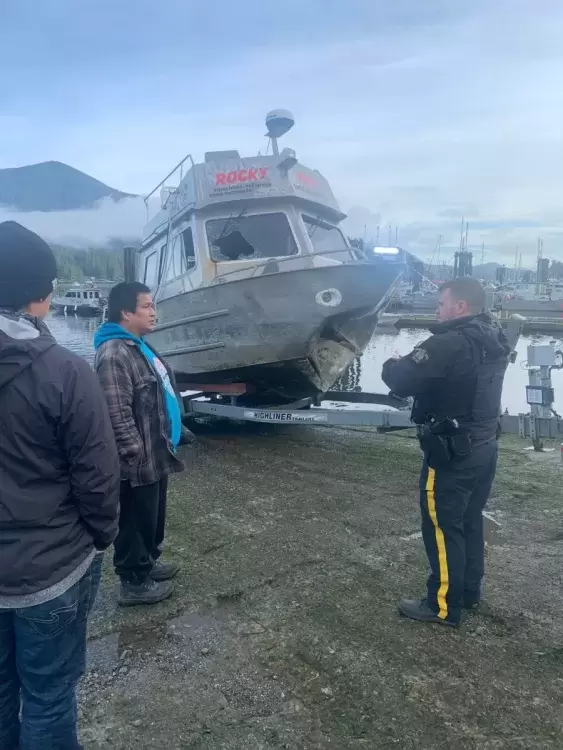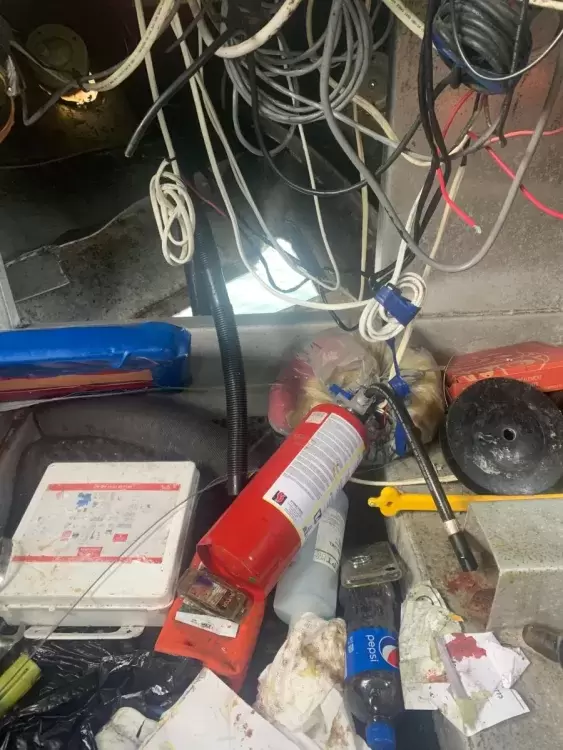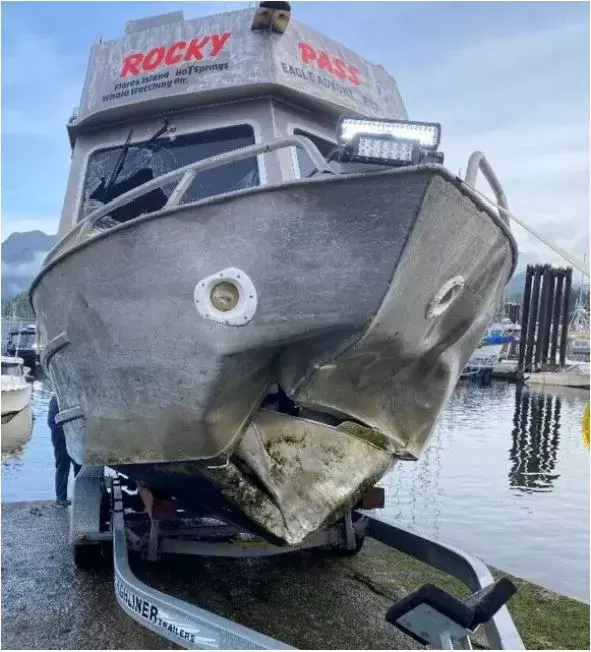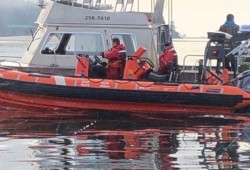A transportation Safety Board investigation is pointing to the combination of dense fog, instrument failure and fatigue from an overworked operator as factors that could have led a water taxi to crash into a rock during a routine trip from Tofino to Ahousaht.
The federal agency released its report today, with details leading up to the crash involving the Rocky Pass in early 2022. Four of the five people aboard the water taxi were seriously injured when it hit a rock in a shallow area between Tofino and Ahousaht on Jan. 25, 2022, including skipper Chris Frank.
The accident occurred during a morning of thick fog, conditions that prompted Environment Canada to warn that visibility could be reduced “suddenly to near zero” on the water around Vancouver Island. The Rocky Pass, which was one of the busiest water taxis between Tofino and Ahousaht at the time, had arrived from the Flores Island community to make its first pick up at Tofino’s First Street Dock.
Rocky Pass left the dock at 9:05 a.m., as another water taxi was also headed to Ahousaht, while two more were coming the other way towards Tofino. Halfway through the journey the vessel passed through Coomes Bank, a shallow area with rocks that become exposed during low tide, which is the typical passage for water taxis venturing between Tofino and Ahousaht. The boat was steered a few metres to the right of its usual track through Coomes Bank to give the oncoming vessels space, stated the TSB report, noting that its speed was 22 knots, three knots slower than normal for water taxi travel through this area.
“As the vessel was transiting Coomes Bank, the GPS display froze and, as a result, the operator could no longer view the vessel’s actual position on the display,” described the report. “The operator was attempting to reset the GPS by using the zoom feature when he observed a rock directly in front of the vessel.”
Rocky Pass hit the rock at 9:28 a.m.
“The operator was thrown forward out of his seat and struck the front window but was subsequently able to stop the engines and transmit a Mayday call using the VHF radiotelephone with the assistance of one of the passengers,” continued the TSB.
The Canadian Coast Guard responded, as did the Coastal Nations Coast Guard Auxiliary and other vessels in the area. With a large dent and hole in the hull, witnesses saw the taxi taking in water.
Reports said that the vessel’s radar had problems “with the clarity of the display that affected its usefulness”, stated the federal agency.
“This speed in these conditions provided the operator with approximately two seconds to react to any navigational hazards,” said the report. “As well, the operator was relying on a single navigational aid, the GPS, to maintain a safe passage because the vessel’s radar was not in use during the voyage. When the GPS display froze, the operator had no back-up navigational aid to provide positional information.”
On such a foggy morning, a back-up navigational aid could have provided welcome assistance - especially considering that Frank had returned from transporting someone for a medical issue just hours before he got up for work that morning. Ahousaht relies on water taxis for medical evacuations to Tofino, and without a set schedule, Frank ended up being the driver willing to take an emergency call the previous night when he was getting ready to go to bed.
“He waited approximately 20 minutes to see if someone else would respond to the call, and when no one else did, he responded,” stated the report, noting that Rocky Pass left Ahousaht at 11 p.m. with the patient. “Once in Tofino, the operator stayed at the wharf to see whether the patient would require a return transfer to Ahousaht.”
As he waited Frank slept in the boat, before heading home without the patient. He got back to Ahousaht at 2 a.m., and was awake at 6:15 a.m. to depart on the first trip of the day half an hour later.
Although the TSB couldn’t determine if fatigue was a factor in the Jan. 25 collision, it notes that the lack of coordination among water taxis to perform medical evacuations from Ahousaht creates a risk for the vessel operators.
“This unpredictability makes it challenging for operators to prioritize their hours of rest and exposes them to the rick of fatigue,” stated the report.










